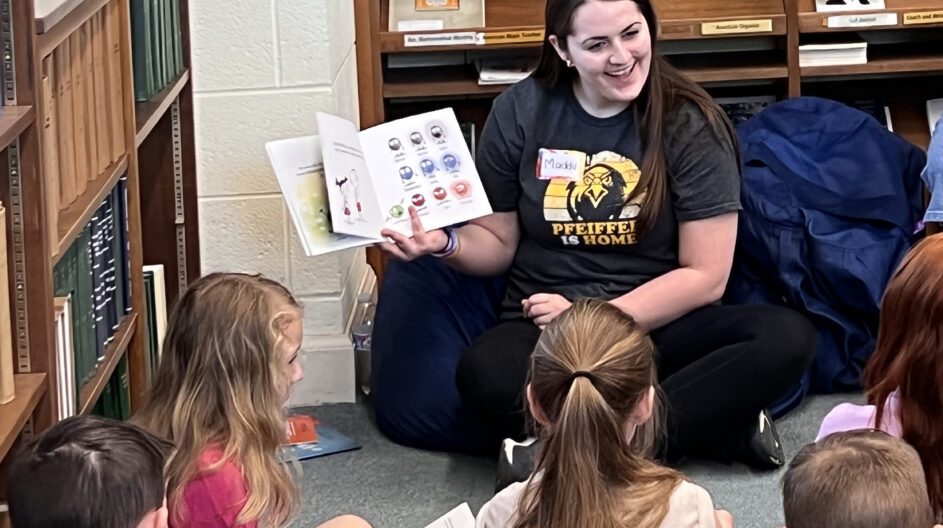
New Reading Curriculum to Begin on Solid Foundation
The Department of Education at Pfeiffer University will offer literacy courses based on “Science of Reading” research beginning in the spring semester of 2024, to aide future teachers in complying with a bill passed by the North Carolina General Assembly in 2021.
Dr. Dawn Lucas, Pfeiffer’s Dean of the Undergraduate College and Department Chair for Education, is confident that the University’s education professors are up to the task of providing instruction in Science of Reading methods for teacher candidates, who will be required by law to follow them when they start teaching in North Carolina’s public schools.
“We’ve done a lot of work on the front side of things,” she said. “We’ve focused on implementing the Science of Reading approach into our curriculum, and I’m confident in our ability to adapt to changes in the reading and literacy instruction we’re about to offer to our teacher candidates.”
Dr. Angela Kern, a Professor in Pfeiffer’s Department of Education, played a key role in the transition to Science of Reading at Pfeiffer, along with her colleague, Assistant Professor Dr. DeAnna Hurley-Chamberlain.
Kern described Science of Reading as “the body of research that explains how individuals learn how to read and best practices for reading instruction.”
“New methods include explicit, multisensory, and systematic instruction in word recognition and language comprehension which leads to meaningful reading comprehension,” she said. “Focus of instruction includes: phonemic awareness, phonics, fluency, vocabulary, and comprehension.”
Shortly after Science of Reading became mandated in North Carolina, a Science of Reading Initiative emerged in which the Goodnight Educational Foundation awarded Pfeiffer and other members of the North Carolina Independent College and Universities (NCICU) $1 million over two years to support the implementation of Science of Reading into the NCICU members’ curriculums for teacher education students.
Pfeiffer used its portion of the foundation grant to fund numerous training workshops for professors. In addition, the professors perfected Science of Reading methods in practice with children from nearby public schools during Falcon Literacy Days.
When Lucas looks at the big picture related to Science of Reading, she’s encouraged because Pfeiffer’s education students will find that the Science of Reading approach is used in each of North Carolina’s public schools. In the past, approaches had varied from school to school.
“It is empowering to know that we are training our future teachers to utilize a program that we know for sure they’re going to be using in North Carolina’s school systems,” she said. “It will make an important difference for our graduates and for education in our state.”